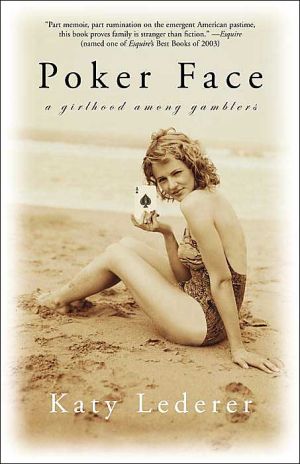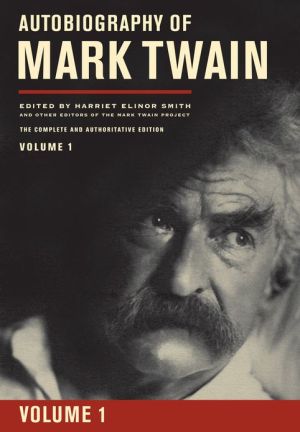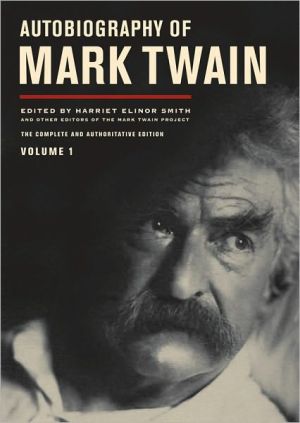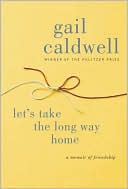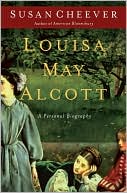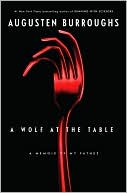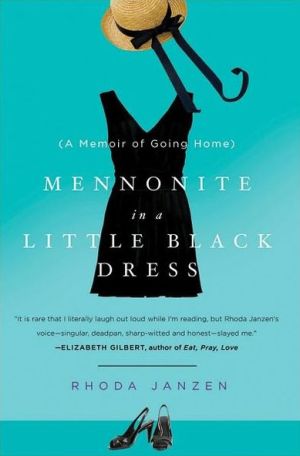Poker Face: A Girlhood Among Gamblers
“The intricacies of family and the complexities of the games they play mingle wonderfully here in a memoir quite unlike any other.”—George Plimpton, author of Truman Capote\ Katy Lederer grew up on the bucolic campus of an exclusive East Coast boarding school where her father taught English, her mother retreated into crosswords and scotch, and her much older siblings played “grown-up” games like gin rummy and chess. But Katy faced much more than the typical trials of childhood. Within the...
Search in google:
“The intricacies of family and the complexities of the games they play mingle wonderfully here in a memoir quite unlike any other.”—George Plimpton, author of Truman CapoteKaty Lederer grew up on the bucolic campus of an exclusive East Coast boarding school where her father taught English, her mother retreated into crosswords and scotch, and her much older siblings played “grown-up” games like gin rummy and chess. But Katy faced much more than the typical trials of childhood. Within the confines of the Lederer household an unlikely transformation was brewing, one that would turn this darkly intellectual and game-happy group into a family of professional gamblers.Poker Face is Katy Lederer’s perceptive account of her family’s lively history. From the long kitchen table where her mother played what seemed an endless game of solitaire, to the seedy New York bars where her brother first learned to play poker, to the glamorous Bellagio casino in Las Vegas, where her sister and brother wager hundreds of thousands of dollars a night at the tables, Lederer takes us on a tragicomic journey through a world where intelligence and deceit are used equally as currency. Not since Mary McCarthy’s Memories of a Catholic Girlhood has a writer cast such a witty and astringently analytic eye on the demands of growing up. An unflinching exploration of trust and betrayal, competition, suspicion, and unconventional familial love, Poker Face is a testament to the human spirit’s inventiveness when faced with unusually difficult odds. Publishers Weekly Centered on dead-on perceptions of the swirling needs, poses and cruelties of her family, Lederer's debut memoir is less Positively Fifth Street than an alienated New England version of The Liar's Club, and ends up with some of the best of both. Poet Lederer (Winter Sex) winningly tracks her siblings' improbable metamorphosis from New Hampshire private school faculty brats (and occasional degenerates) to world-class card sharks at the Las Vegas poker tables. (The transformation of Katy's father Richard Lederer from quiescent teacher to celebrated author of Anguished English and other language puzzle books happens mostly off-camera.) After parsing the class codes (and anti-Semitism) of her rich peers, young Katy becomes curious about her siblings' mysterious, money-laden reinventions of themselves, eventually following her brother, Howard (with their recovered alcoholic mother keeping his bettor's books), and sister, Annie, to Sin City to stake her own claim. There aren't enough of Lederer's blow-by-blows of learning to play among hardcore pros, tourists and "compulsives," but her descriptive gifts are on display throughout, even in the "ultragibbous" eyes of one of her brother's sports bettor clients. Totaling up her experiences at the $3-$6 tables, Katy chooses writing over poker, but while studying poetry at the Iowa Writers' Workshop, her mother and older siblings' massive accumulation of wealth disappears overnight, with jail looming. Despite loose structuring and too many sketchily detailed events, Lederer hones in on the family's complex relationship to games, money and one another and their efforts to direct the ebb and flow of all three, and will convince even the abstemious of gambling's deep power to alter relationships. (On sale Aug. 12) Copyright 2003 Reed Business Information.
The Green Glasses\ Inside the bag it was money. That was all. Hundreds in paper-banded bundles of $5,000. Back at home, it had been tens and twenties, but here in New York it was “C notes” and “Benjamins.” A stack of ten was called “a dime,” while only one was called “a dollar.”\ Before I looked inside the bag, which sagged open on the backseat of the cab, I supposed it was cocaine (clear white bags, like sugar), or possibly heroin. I think that’s what I must have thought, though I can’t remember now. What I do remember is taking a conscious mental picture of the contents of the bag, mindful of the fact that this was a grave, important moment–that all of this money was a glowing green portal between the tedious past and some glorious future. I was riding around in a new yellow cab, a pair of fancy glasses in my pocket, off to some destination I knew would be glamorous. “You’ve got to keep your mouth shut” was all that my brother had said. “He’ll think it’s pretty weird that I brought you along.”\ I’d arrived in New York from New Hampshire that morning. My father had dropped me at the local city bus terminal, handed me my two-way fare, and told me to give his regards to Annie and Howard, my sister and brother, who were, respectively, seven and nine years older than I. Both were in New York–Annie near Columbia, where she was in her second year, Howard on the Upper West Side–and my father was worried. My brother, especially, had been broke for many years. He was a two-bit, losing gambler and my father believed he had ruined his life. The last time we’d seen him, he’d come to New Hampshire to purchase a car, a dark blue Dodge Dart with a passenger side window that wouldn’t close, and he’d brought a friend up with him named Mitch, who’d wipe his long nose with the back of his hand. My mother, who was still in the house at that time, had offered Mitch some lemonade, but Mitch had refused, made some quiet excuses. It was just a few months after this that my mother left the house for good, and I suppose I’ve always connected the incidents: the bright afternoon and Mitch slumping in the wicker chair; my mother, who went off to be an actress in New York.\ *\ By the time the elevator arrived on his floor, Howard had already unlatched the door and put his head out. I was happy to see he looked good. His complexion was no longer sluggish and his eyes were bright.\ “How was the trip?” he inquired.\ “Take my bag,” I replied.\ He was wearing plain khaki pants and a clean blue oxford shirt. As he walked back into the foyer, I thought he resembled Paddington Bear, looking for someone to tell him what to do.\ “What’s the verdict?” he asked as he waved his thick hand in the air. The kitchen was closet-sized, but the rest of the apartment was spacious. The master bedroom had its own bathroom and a bed decked out in dark green sheets. On the duvet, there was a bright depiction of a safari scene, and I thought to myself that the bed would be big enough to sleep an elephant if the necessity ever presented itself. Howard then led me into the small corner guest room where I’d be sleeping. A large bank of windows on two sides of the room afforded a clear view of the bustling city corner down below.\ “It’s really nice, Howard,” I said after a considered pause. I was thirteen years old and I doled out my compliments accordingly.\ “Well, thank you,” he replied, rummaging around in his pants pocket and pulling out a fist-sized roll of $100 bills. “To celebrate your approval, we’re going shopping.” At this, he darted past a frumpy leather lounger, unlocked the door, and waved me on. “We can put your stuff away later. C’mon.”\ *\ Across the street from my brother’s new building was a fashionable boutique called Charivari. I had noticed it on my way in because Annie would talk about it incessantly over the phone when she called me from school. Though it was far too expensive for her collegiate budget, she liked to fantasize about their biannual sales, and I was receptacle enough for her reveries. The store felt both spare and sumptuous at once. It was a small space, but immaculately kept. The racks were only halfway filled, each item in its special place. When I first set eyes on the merchandise, I hardly dared touch it, it looked so pure and clean.\ As I gazed, Howard followed along, telling me repeatedly that he wanted me to have anything I liked. After some minutes of wandering the store in circles, unable to focus on the task at hand, a white linen blouse caught my eye. The buttons were made of a clear glass and glinted prettily in the light. I looked at the price tag–$400–and recoiled. I imagined my father somewhere over my shoulder, shaking his head in disapproval. My mother was behind the other shoulder, shrieking at the top of her lungs that if Howard would ever bother to take her shopping (which of course he never would) and if he ever offered to buy her anything at all, well then, she’d damn well take him up on it. I stared at the blouse for a very long time and with a terrible longing. A wispy salesman even asked me if I’d like to start a dressing room, but I couldn’t do it.\ “I mean it,” Howard insisted. “Anything at all. That’s what money’s for.” I gazed up at his eager face and thought of all the blouses that I’d ruined in my life. As I was about to tell him that it wasn’t any use, I noticed a plain pair of sunglasses in the display case at the front of the store. They had thick square lenses and a functional design. The only thing that made them worthy of their place at Charivari was the fact that they were green–a very pretty green, like the sea.\ “They’re made of tortoiseshell,” the salesman said, picking them out of the case. When I took the glasses in my hands, I glanced furtively at the price tag–$100–still too much, but before I could replace them, Howard had paid, snapping a single green bill from his roll.\ When we got outside the store, I asked Howard the one question that none of us in the family had been able to answer. How had he gotten his hands on so much money? He explained to me that, since his first days playing poker in New York, he’d risen through the limits till he made it to the highest staked table in the city: the $50—$100 game at the Mayfair Club. “If I’m beating my table,” he told me, the rush-hour traffic pooling around us, “I stand to make about fifty dollars, maybe even a hundred an hour–that’s a lot.” I accepted his answer. It was the answer we’d all guessed at, even contrary to our worst expectations, but it was only one half of the truth.\ ***\ As we walked in the apartment, the phone started ringing. It was someone named “Z,” who I gathered was some sort of business associate. “I’ve got to run an errand and you’ll have to come with,” Howard said. We then hopped a cab to the Mayfair, near Gramercy Park.\ I try now to remember what I thought about the game of poker back then, when I was thirteen, and I suppose it must have seemed awfully mysterious. Though my father dabbled in it, playing for quarters in a faculty game at the school where he taught, and though Annie had watched Howard play and had come to understand the game quite well, the family as a whole regarded it as vulgar–good enough for con men and their ilk, but certainly not good enough for us. It was, in other words, no bridge, and so, even though the family itself may have been composed of a poor moral fiber, we looked down our noses at poker.\ My personal view of the game changed when I walked into the Mayfair, however. The walls were as yellow as old lemon rinds and the short charcoal carpeting was sullied and worn, but the majority of the clientele was sparkling. Howard’s table, which was in the far corner of the main room, was the only exception, for it was the proverbial “biggest game in town” and a magnet for professional players, who liked to wear sateen and sweats.\ “Is Z here?” Howard asked, as we sidled up to the table. It was early for a game of poker on a Sunday night, and there were only four people playing: a slight fellow named Mickey, who was wearing a sweatband around his mop of yellow hair (and bore an uncanny resemblance to the tennis star Björn Borg); a swarthy man named Billy Horan (who’d originally invited Howard to join the game); and a very stiff Orthodox rabbi–the sucker (even I could see that).\ According to Mickey, Z had been there earlier, but he’d had to go. “He left a package with Erik for you,” he said, eyeing his cards.\ “Where’s Erik?”\ “He’s in the john.” Mickey chucked some of his chips on the table. It was the first time I’d seen poker chips up close, and I remember thinking they looked like Necco wafers.\ “Raise,” said Mickey.\ “Call,” said the rabbi.\ Before we’d arrived, Billy (who was the acting dealer for the round) had already placed three cards in the center of the table–an ace of clubs, a king of spades, and a four of hearts. I didn’t know the rules of poker, and I doubted Howard would appreciate my asking him questions just then, so I watched. After Mickey raised and the rabbi called, another card was placed face up in the middle of the table–an eight of spades.\ “Bet,” said the rabbi.\ “Raise,” said Mickey.\ “Raise you back,” said the rabbi. Mickey hesitated.\ “Call,” he finally said, adjusting his sweatband so it rested on the crown of his head.\ Erik then emerged and came toward the table. He was lanky and tall with a great beaky nose, big brown eyes, and thick brows. “You must be Howard’s sister,” he said, presenting his hand.\ “I don’t know who you are,” I said.\ “I’m Erik Seidel. I’m a friend of your brother’s.” He asked me how I liked New York, what I thought about poker. I told him that I liked it all OK, and that it beat staying home for vacation. He laughed and said I’d fit right in. “Just like your brother.” He leaned over and pulled a crumpled paper bag from beneath his chair. “Z left you this,” he said. Howard took the bag and looked inside.\ “Why can’t Z give me a real bag to carry this stuff around in?”\ “Dunno,” said Erik, settling back into his seat and fixing his eyes on the game.\ “All right, let’s see what you got,” said Mickey.\ The rabbi showed his lucky hand–a pair of fours; with the four that was already on the table, they made three of a kind. “Can you beat trips?” he asked. Mickey shook his head.\ Billy started laughing. “Trips are for kids,” he said.\ “Not for silly rabbis,” Howard muttered as he walked toward the door. I tagged along, waving good-bye to all the strange new people.\ The rabbi glared up at us with astringent disapproval. “You turn out better than your brother, little girl,” he said, pulling in his pile of chips. “You don’t want to end up in a place like this with people like us.”\ *\ After driving up Third Avenue, past blocks and blocks of the city’s poshest housing, we arrived at a tony address on the Upper East Side. Unlike Howard’s building, which had all the charm of a high-rise made of Legos, this building was old–at least a hundred years. The doorman was expecting Howard.\ “Mr. Digges didn’t say anything about a girl,” he said.\ “This is my sister,” Howard said.\ The doorman stared. “All right,” he replied. “Elevator’s over there.”\ “We’re going to the penthouse,” Howard whispered, as if we were going straight to heaven.\ When the elevator doors opened, we disembarked in a vast, vaulted hallway, decorated by little more than a crimson Oriental runner. The entire place smelled of orchids and liquor, and I inhaled the aroma deeply. I imagined that only the most rarefied and discerning creature could occupy such a place, and all my inhibitions fairly melted with the pleasure of it. On a table to our right there was a tiny jade Buddha and a vase stuffed with lucky prosperity vines.\ “Digges must replace these every other day,” my brother mumbled. “They never dry out.”\ While my brother admired the vines, an ugly little man appeared dark in the doorway and ushered us into the living room. He was squat and rotund, clad in nothing more than a sleeveless white T-shirt and a pair of khaki shorts, which exposed his veiny, dimpled legs. His feet were as bare as a baby’s, and his head was perfectly and blindingly bald.\ “Hey, Digges,” Howard said, offering up the bag. “I hope this helps.”\ “Sorry to bring you here on such short notice,” Digges replied. “But I needed the cash and the banks are all closed. I presume this is the little sister?”\ Howard gave me an appraising look. “She’s here for the week–on vacation from the eighth grade, if you believe it.”\ “Jesus,” said Digges, whistling. “Eighth grade. That’s a real vintage year.”\ “I’m going to go to boarding school next year,” I said, eager to impress the charming Digges.\ “Boarding school,” Digges replied, stooping over a bit to reach my level. “That’s something else.”\ I nodded my head.\ “Would you like a little sherry?”\ “I’m not sure,” I said, blushing, and I knew at that moment that I didn’t belong–not there, in that apartment at that hour. There was a large square glass table in the center of the room, and I imagined crawling stealthily beneath it, looking up through the clear wedge of glass at my brother and Digges, who were laughing, who were passing all that money back and forth.
AcknowledgmentsviiIPrologue: The Green Glasses31Faces132Stealing253Games354The Bar Point455Old Money556New Money657The Figures778The Family Business879Happiness97II10A's10711One of Them11912Tells12913PokerWorld14114Expectations15115A Girl's Room16316Facades17317The Files18518Who Wants to Be a Millionaire?197Epilogue: "The Dancing Waters"207
\ From Barnes & NobleBarnes & Noble Discover Great New Writers\ Katy Lederer's childhood was what one might term unusual. Her mother was an alcoholic; her father became a bestselling writer; and her older brother transformed himself into a homeless New York City hustler. Feeling lonesome at home, Katy also felt the outsider at the pricey boarding school where she and her siblings, as the children of faculty, were entitled to a free education. From within a family where individual cunning was valued nearly as highly as academic achievement, Lederer set out to find her way through a seemingly illogical world. \ After graduating from college, Katy joins her family in Las Vegas, where her siblings work as world-class poker players while Mom manages the books. The tense world of gambling is a far cry from the rarified terrain of an elite prep school, and it's not the future Katy's mother had in mind for her: "I thought you'd be the normal one," she said. "I don't want another gambler…. Can't you at least get a job in a casino? As a waitress or something?"\ Lederer tells her story with a keen, dry wit and a gimlet eye for the telling details, revealing the colorful people who inhabit her offbeat world. Eventually, Lederer abandons her quest for glory at the poker table, seeking success as a writer. This funny, painful, but ultimately happy memoir is proof that she has found it. (Fall 2003 Selection)\ \ \ \ \ \ Publishers WeeklyCentered on dead-on perceptions of the swirling needs, poses and cruelties of her family, Lederer's debut memoir is less Positively Fifth Street than an alienated New England version of The Liar's Club, and ends up with some of the best of both. Poet Lederer (Winter Sex) winningly tracks her siblings' improbable metamorphosis from New Hampshire private school faculty brats (and occasional degenerates) to world-class card sharks at the Las Vegas poker tables. (The transformation of Katy's father Richard Lederer from quiescent teacher to celebrated author of Anguished English and other language puzzle books happens mostly off-camera.) After parsing the class codes (and anti-Semitism) of her rich peers, young Katy becomes curious about her siblings' mysterious, money-laden reinventions of themselves, eventually following her brother, Howard (with their recovered alcoholic mother keeping his bettor's books), and sister, Annie, to Sin City to stake her own claim. There aren't enough of Lederer's blow-by-blows of learning to play among hardcore pros, tourists and "compulsives," but her descriptive gifts are on display throughout, even in the "ultragibbous" eyes of one of her brother's sports bettor clients. Totaling up her experiences at the $3-$6 tables, Katy chooses writing over poker, but while studying poetry at the Iowa Writers' Workshop, her mother and older siblings' massive accumulation of wealth disappears overnight, with jail looming. Despite loose structuring and too many sketchily detailed events, Lederer hones in on the family's complex relationship to games, money and one another and their efforts to direct the ebb and flow of all three, and will convince even the abstemious of gambling's deep power to alter relationships. (On sale Aug. 12) Copyright 2003 Reed Business Information.\ \ \ Library JournalThe old-timey feel of this memoir belies poet Lederer's being just on the brink of her writing career. From the sepia-style cover photograph (presumably of the author) to the end, the book's tone is one of dreaminess and distance. Time references and segues between stories are not always clear and match the author's frequent comments about her spotty memories. Lederer is nevertheless a talented writer, here crafting a history of her slightly off-kilter, slightly dysfunctional gambling family. Often it is as if she were describing someone else's life. Although the Lederer family was decidedly middle class, living on the grounds of an elite boarding school in New Hampshire where their father taught English, most went on to careers in gambling. Lederer's brother ran a successful sports-betting operation that employed their mother. Her brother and sister (poker champion Annie Duke) play poker professionally, and the author spent time playing poker before graduate school. It's difficult to explain why this book is so compelling, but it's probably because the Lederer family is so quirky and yet portrayed here in such a loving manner. Recommended.-Karen Sandlin Silverman, Lansdowne Friends Sch. Lib., PA Copyright 2003 Reed Business Information.\ \ \ \ \ Kirkus ReviewsElliptical memoir depicting a girlhood of deception and gradually receding naïveté. Poet Lederer captures in deliberate, observant prose a gradually deteriorating middle-class life in the 1970s and '80s, noting that "what I relished was the togetherness that came with total family conflict." The youngest child in a competitive intellectual clan that seemed closest during card games, she felt perpetually outsmarted by her savvy, distant brother and sister, fearful of the conflicts between her rigid teetotaler father and her alcoholic mother. (They eventually separated; later, her father achieved fortune with the Anguished English series.) Her brother Howard left home early. His first year as a New York gambler was a sordid disaster-for such individuals, Lederer notes, luck "resembles nothing more than a mangled version of hope"-but he eventually rose to the upper echelon of professional poker players, as did her "preternaturally vicious" sister. The comparatively conservative Katy attended prep school and Berkeley; then, intimidated by her literary ambitions, she apprenticed herself to Howard as a poker player, her volatile mother having previously joined his quasi-legal bookmaking operation, and in a scheme to start a glossy magazine, PokerWorld. Her narrative captures both the sleazy underground gambling milieu and the glossy allure of the high-roller scene at top Las Vegas casinos. Despite Howard's guarded approval, poker denizens warn Katy away from the lifestyle; "you can make something better than this," says one. Wearied, she heeds this advice, enrolling at the Iowa Writers' Workshop as Howard's operations are shut down by the Las Vegas police for being part of "a$400-million-a-year illegal sports betting network." Lederer's meditation on family and chance is finely written, yet suffers from a curious stasis: by the conclusion, Howard's legal troubles have evaporated, and her kin have returned to the world of high-stakes gaming. She perceives the past with acuity, but arrives at only modest personal judgments. Compact and well-executed.\ \
